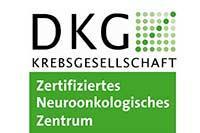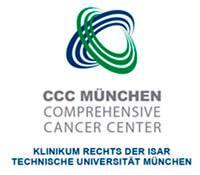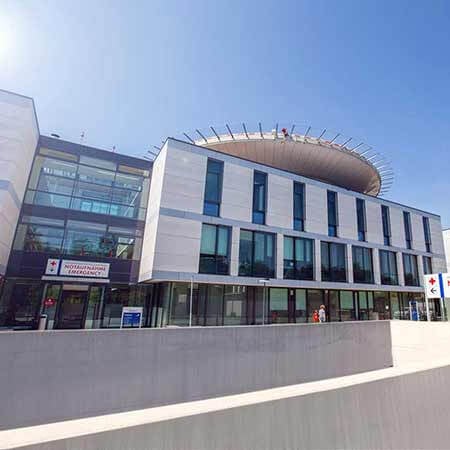A pituitary adenoma is a benign tumor that can secrete hormones such as prolactin, somatotropin (growth hormone), ACTH (adrenocorticotropic hormone), or TSH (thyroid-stimulating hormone). The adenoma can sometimes be non-functioning and not secrete any hormones. Doctors at German hospitals perform operations and use drug therapy to treat this disease, while radiation therapy is a less common option.
Content
- Surgical treatment
- Drug therapy
- Radiation therapy
In most cases, the tumor is removed endoscopically through the nose. Drug therapy is considered the main treatment method for prolactinomas. In the case of contraindications to surgery, as well as in residual and recurrent tumors, radiation therapy is performed.
You can undergo your treatment at one of the following hospitals: University Hospital Rechts der Isar Munich, University Hospital Freiburg, or Charite University Hospital Berlin.
The specialists from the Booking Health company will take care of all the arrangements for your trip, from choosing a clinic and a doctor to translating the received recommendations into your native language. Our employees will quickly make an appointment for you, help you to apply for a visa and come to the hospital, take care of accommodation and provide interpreting services. A personal medical coordinator will help you with any questions you may have 24/7.
Surgical treatment
Surgery is considered the main treatment of pituitary adenoma in Germany, although not for all types of this tumor. Previously, the intervention was performed through a hole in the skull. Now it is performed using a minimally invasive technique – the tumor is removed through the nose (transsphenoidal resection or endonasal adenomectomy). This is a minimally traumatic and safe operation followed by a short rehabilitation period.
Surgery is considered the first choice for the treatment of adenomas that secrete:
The complete normalization of hormone levels after surgery occurs in 90% of cases.
Surgery is not considered a first-line treatment for prolactin-secreting adenomas. Patients usually receive drug therapy. The operation can be performed only if the goal of treatment is to eliminate infertility, in the case of the ineffectiveness of drugs, the impossibility of their use due to contraindications, and if the size of the adenoma is more than 1 cm.
Surgery is also not considered the first choice for non-functioning adenomas that do not secrete any hormones. Such patients are monitored. The operation can be performed only when there is pressure from the tumor on the optic nerve, impaired vision or mobility of the eyeball, a pituitary gland tear or rapid neoplasm growth.
Drug therapy
Drug therapy is a first-line treatment only for prolactinomas. In other cases, this is an additional treatment that is not required for all patients.
In the case of prolactinomas, drug therapy can not only control the symptoms, but also shrink the adenoma. After 2 years of treatment, it completely disappears in most women.
Indications for the use of drug therapy for other types of adenoma are as follows:
- somatotropinoma – drugs are prescribed only to control the disease while waiting for the operation (if it cannot be performed immediately) and if the elevated insulin-like growth factor levels persist 3 months after the completion of surgical treatment;
- ACTH-secreting adenoma – if the effect of the operation is insufficient, doctors may use drugs to suppress the function of the adrenal glands;
- TSH-secreting adenoma – drug therapy is carried out before surgery to avoid a thyrotoxic crisis (antithyroid therapy is performed).
Radiation therapy
This treatment option can be used to destroy a pituitary adenoma with radiation. This technique is not considered the main one. Radiation therapy is used for primary treatment only in debilitated patients who are contraindicated for surgery. The main drawbacks of irradiation are that the method works gradually (pressure on the organs and hormone production persist for some time), it cannot always eliminate the adenoma completely, and, in some patients, it may cause post-radiation complications. The clinics in Germany use innovative options for irradiating tumors, so the risk of complications is very low.
Here are some other applications of radiation therapy:
- a patient's refusal of the operation;
- a residual tumor after surgery;
- a pituitary adenoma recurrence;
- irradiation after surgery for somatostatin-secreting adenomas can be carried out in the case of elevated insulin-like growth factor levels in the blood.
You can undergo your diagnostics and treatment of pituitary adenoma with good results and a minimal risk of complications in Germany. You are welcome to use the Booking Health website to find the cost of treatment and make your appointment at the best price. Our specialists will select the best medical centers for you and take care of all the arrangements for your trip.
Authors:
The article was edited by medical experts, board-certified doctors Dr. Nadezhda Ivanisova and Dr. Sergey Pashchenko. For the treatment of the conditions referred to in the article, you must consult a doctor; the information in the article is not intended for self-medication!
Sources:
PubMed
MedicineNet















